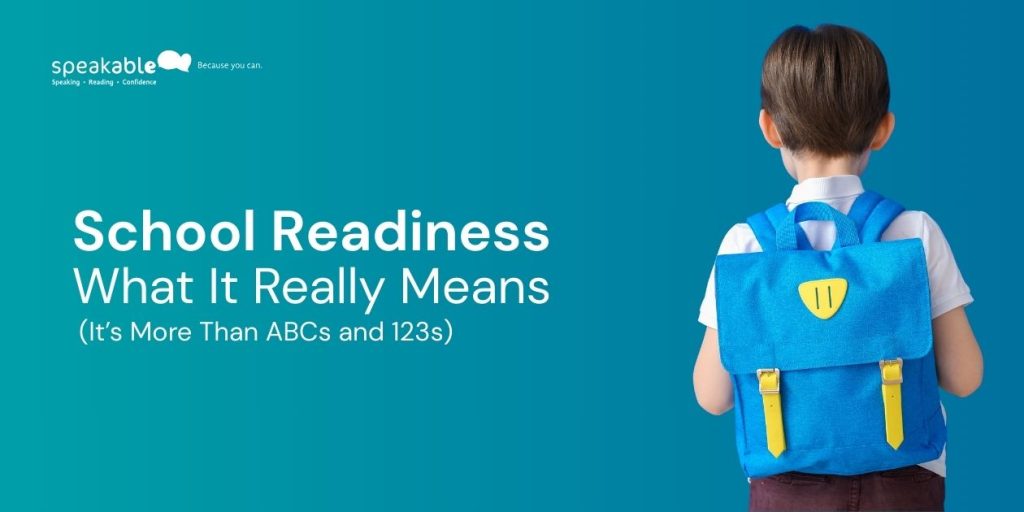School Readiness: What It Really Means (Beyond ABCs & 123s)
What School Readiness Is Not
It’s a common myth that if a child knows the alphabet, can write their name, or count to 20, they’re “ready for school.” While those skills are helpful, they don’t guarantee success in a classroom environment.
👉🏼 In fact, reading, writing, and maths are not even formal requirements before starting school — they are things your child will learn once they’re there.
What truly matters are foundational skills like:
- Expressing thoughts and needs
- Following directions
- Managing emotions
- Participating in group play
These are the tools that help children feel confident, safe, and ready to learn.
The 5 Pillars of Real School Readiness
1. Communication Skills
Can your child:
- Ask for help?
- Share their thoughts?
- Join a group conversation?
Strong communication lays the foundation for learning and friendship.
2. Social Play Skills
School is full of shared spaces — playgrounds, group activities, line-ups.
Children who understand how to take turns, listen, and play cooperatively have a much easier time adjusting.
3. Following Instructions
Learning relies on being able to:
- Focus on the speaker
- Understand two-step directions (e.g., “Get your book and sit on the mat”)
- Follow classroom routines
4. Emotional Regulation
Every school day comes with highs and lows — and children need tools to manage those moments.
Can your child:
- Recognise when they’re upset?
- Ask for help or take a calming break?
- Return to learning after a disruption?
These are powerful signs of emotional readiness.
5. Independence in Daily Routines
Teachers look for signs that a child can:
- Go to the toilet without help
- Open their lunchbox
- Pack up their belongings
These small tasks build confidence and reduce classroom stress.
How Can I Tell If My Child Is Ready? A Simple At-Home Check
School is a different environment, with group routines, unfamiliar rules, and new expectations. Here are some simple ways parents can check school readiness at home:
🧩 1. Play “School” at Home
Set up a short pretend-play scenario and give simple instructions. Observe how your child listens, follows directions, and transitions between tasks.
🗣️ 2. Observe Peer Interactions
At the park or a playdate, notice if your child takes turns, starts conversations, and handles conflict.
🧠 3. The “5-Minute Task” Test
Ask your child to complete a 3-step task. If they get easily distracted or frustrated, this may be an area to support.
❤️ 4. Talk About Emotions
Use books or cartoons to spark emotional conversations:
“How do you think that character felt?”
“What would you do if that happened to you?”
How Parents Can Support at Home
Support doesn’t require flashcards. Some helpful strategies:
- Play games involving turn-taking and instructions
- Talk about emotions
- Encourage independence in daily routines
- Read books together and ask open-ended questions
These everyday interactions build powerful, school-ready skills.
When to Ask for Help
If your child struggles in several areas, it might help to talk to a professional.
At Speakable, our speech pathologists can support your child’s readiness to thrive at school — in a warm, play-based environment.
Final Thoughts
School readiness isn’t about perfection — it’s about progress.
If you’re unsure whether your child is ready, or want to strengthen key skills, support is available.
🌟 Want to chat with a professional?
👉🏼 Contact our friendly team today and take the next step with confidence.




